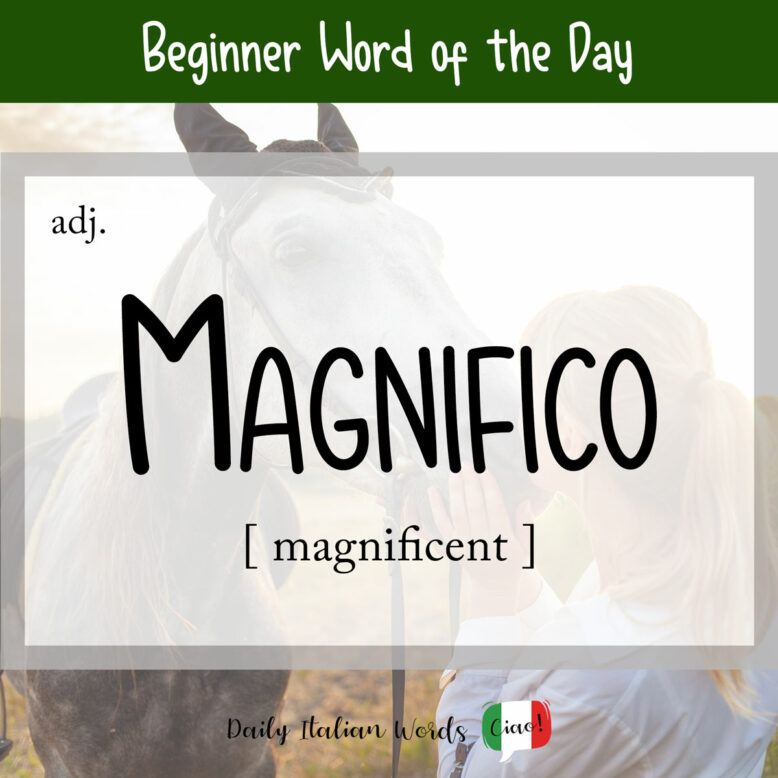The Italian translation for magnificent is magnifico. Both words can ultimately be traced back to the Latin magnifĭcus, which is a combination of magnus (big) and facere (to do).

Because magnifico is an adjective, the ending changes depending on whether you are talking about a masculine, feminine or plural subject.
- magnifico = masculine, singular
- magnifica = feminine, singular
- magnifici = masculine, plural
- magnifiche = feminine, plural
Se sali in cima alla collina, ti potrai godere un magnifico panorama.
If you go to the top of the hill, you can enjoy a magnificent view.

In addition to denoting beautiful or extraordinary things just like its English equivalent, magnifico may also translate as generous in Italian.
Era un padrone davvero magnifico.
He was a truly generous owner.
It is from this sense of the word that we get the expression fare il magnifico which means to show off one’s wealth by being very generous.
During the Renaissance, Magnifico was also a title of respect attributed to princes, great personalities, doctors and magistrates. Today it is reserved for university rectors, who are known by the title Magnifico Rettore (Rector Magnificus).
Some words that are etymologically related to magnifico include:
- magnificenza = magnificence
- magnificamente = magnificently
- magnificente = magnificent

Heather Broster is a graduate with honours in linguistics from the University of Western Ontario. She is an aspiring polyglot, proficient in English and Italian, as well as Japanese, Welsh, and French to varying degrees of fluency. Originally from Toronto, Heather has resided in various countries, notably Italy for a period of six years. Her primary focus lies in the fields of language acquisition, education, and bilingual instruction.


